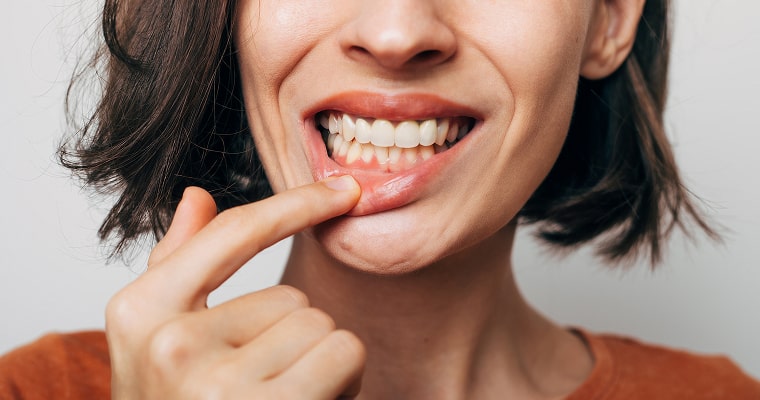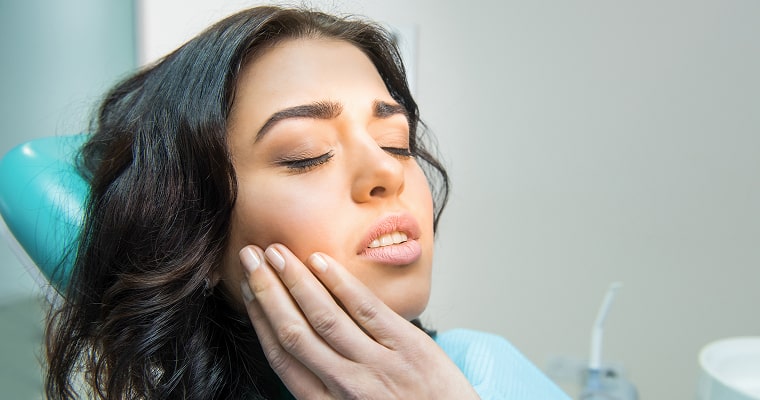Bleeding Gums? It Could Be a Warning Sign of Something Serious
“Bleeding gums are often a warning sign of gum disease or other health issues. At Duncanville Dental Care, Dr. Vasquez stresses the importance of early detection and treatment to protect your oral and overall health.”

Do your gums bleed when you brush?
Do you notice blood in the sink after brushing or flossing? At Duncanville Dental Care in Duncanville, TX, we know bleeding gums are a common symptom patients often ignore. But bleeding gums could mean early-stage gum disease or even an underlying health condition.
Why bleeding gums shouldn't be ignored
Many people assume bleeding gums are harmless. In truth, when your gums bleed, it’s your body sending a warning sign. Ignoring it can eventually lead to advanced gum disease, gum recession, and even tooth loss.
What causes gums to bleed?
The most common cause of bleeding gums is plaque buildup along the gumline. Without good oral hygiene—brushing and flossing regularly—plaque hardens into tartar, irritating the gum tissue. This irritation leads to swollen gums, bleeding, and sometimes persistent bad breath.
Gum disease: The main culprit
Gum disease is the leading reason gums bleed. Gingivitis, the earliest stage of gum disease, can progress to a more severe form—periodontal disease—if left untreated. Dr. Vasquez often sees patients who ignored the early signs and developed loose teeth, bone loss, and serious complications.
Other possible causes of bleeding gums
Not every case of bleeding gums is gum disease. Other factors include:
Vitamin deficiencies, particularly vitamin C or vitamin K
Blood thinners or certain medications
Hormonal changes (such as during pregnancy)
Medical conditions like blood disorders, immune system issues, or other health complications
This is why regular dental checkups with Dr. Vasquez in Duncanville, TX, are essential.
Swollen gums are another warning sign
Swollen gums are often seen alongside bleeding. red, puffy, or tender gums point to inflammation that could signal early-stage gum disease. Early intervention is the key to restoring healthy gums before damage becomes severe.
Gum health and your whole body
Poor gum health doesn’t just harm your smile—it impacts your overall health. Research links severe gum disease to heart disease, diabetes, and other serious health issues. Keeping your gums healthy supports both your teeth and your body.
Why persistent bad breath matters
Bad breath (halitosis) is more than embarrassing—it’s often a warning sign of plaque buildup or gum disease. If improved oral hygiene doesn’t solve it, it’s time to see a dentist for evaluation and treatment.
How to stop bleeding gums
You can often treat gum disease early with a stronger oral care routine:
Brush with a soft-bristled toothbrush twice daily
Floss regularly to remove food particles and plaque
Use an antimicrobial mouthwash
Maintain professional cleanings every 6 months
These prevention tips support healthy teeth and gums long-term.
The role of diet in gum health
A healthy diet plays a big part in gum health. Low intake of vitamin C or vitamin K weakens gum tissue. Too much sugar feeds bacteria and fuels plaque buildup. Eat more fruits, vegetables, and whole foods to keep gums strong.

When bleeding becomes persistent
If your gums bleed daily, this may signal a more advanced form of gum disease. Pain is not always present—so don’t wait. Dr. Vasquez encourages patients to act at the earliest stage for the best results.
Early gum disease can be reversed
The good news: early detection means early gum disease (gingivitis) can be reversed. With professional cleanings and good oral hygiene, patients often restore healthy gums before gum disease progresses.
Severe gum disease needs advanced care
If gum disease advances, stronger treatments may be necessary. Scaling, root planing, or surgery may be required to save your gums and prevent tooth loss. Ignoring gum problems can eventually lead to more serious complications.
Professional bleeding gums treatment
At Duncanville Dental Care, Dr. Vasquez creates personalized bleeding gums treatment plans. Depending on the stage, this may include antibiotics, deep cleaning, or other therapies to remove plaque and restore gum health.
Good oral hygiene is your best defense
The foundation of gum disease prevention is good oral hygiene. That means brushing or flossing daily, using antimicrobial mouthwash, and scheduling regular dental checkups to maintain long-term gum and oral health.
Dental work and gum sensitivity
Sometimes gums may bleed after new dental work such as crowns, braces, or fillings. A little gum sensitivity can be normal, but if it continues, schedule an exam to rule out more advanced form gum problems.
Long-term prevention tips
Protect your gums and teeth by:
Using a soft-bristled toothbrush (avoid hard-bristle toothbrushes)
Flossing and rinsing daily
Avoiding smoking
Maintaining professional cleanings
Following a healthy diet
These prevention tips are the easiest way to prevent gum disease and keep your smile strong.
Take action for healthier gums
Bleeding gums it could be a warning sign of something serious—whether from poor oral hygiene, plaque buildup, or underlying health conditions. At Duncanville Dental Care in Duncanville, TX, Dr. Vasquez helps patients stop gum bleeding, treat gum disease, and protect their oral and overall health.
Don’t ignore the warning signs—schedule a checkup today and keep your smile for life.
